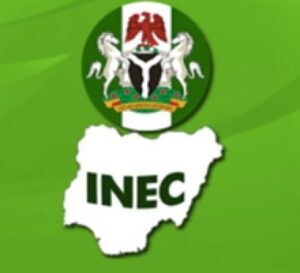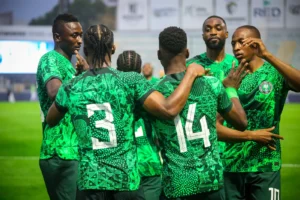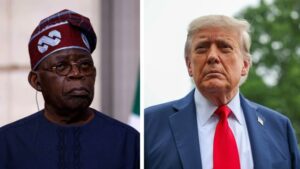
Intrigues, Issues That May Shape Anambra Governorship Election
As Anambra State heads to the polls this Saturday, the off-cycle governorship election is emerging as more than a contest of party platforms, it’s a referendum on political influence, elite alliances, and the shifting dynamics of South-east power.
With 16 candidates in the race, including incumbent Governor Charles Soludo, the battle for Awka’s Government House is being shaped by a complex web of grassroots mobilisation, billionaire backers, and ideological movements.
At the heart of the contest is the ruling All Progressives Grand Alliance (APGA), which has held sway in Anambra since 2006. Governor Soludo, returned unopposed in the party’s primary, is campaigning on his record of infrastructure renewal and youth empowerment. APGA’s strength lies in its deep-rooted local structures, 21 LGAs, 326 wards, and a network of ward captains and traditional rulers that form a formidable grassroots machine.
But the Labour Party (LP), buoyed by the Obidient Movement, is challenging that dominance. Its candidate, George Moghalu, a former NIWA chief, is running on a platform of transparency and public trust. LP’s urban youth base, social media savvy, and diaspora enthusiasm give it momentum, even as it works to build ward-level infrastructure.
The All Progressives Congress (APC), Nigeria’s ruling party, has historically struggled in Anambra but hopes to make inroads with Nicholas Ukachukwu, a businessman promising economic revival. Backed by federal connections and figures like Chris Ngige, APC is betting on its national clout to overcome local skepticism.
Anambra’s political terrain is elite-driven, and endorsements from influential figures could tip the scales. Senators Victor Umeh and Tony Nwoye (both LP) are expected to anchor LP’s regional strength, while APGA’s Emmanuel Nwachukwu shores up support in the south.
Former governors Peter Obi, Willie Obiano, and Chris Ngige remain potent forces. Obi’s backing of Moghalu lends LP credibility among youth and traders. Obiano’s ties to local government structures bolster Soludo’s campaign. Ngige, though less active, still holds sway among older APC loyalists.
House of Representatives members are also expected to play key roles in micro-mobilisation, influencing turnout and logistics in their constituencies.
The Money Men: Billionaires and Market Forces
In Anambra, politics and business are inseparable. Oil magnate Arthur Eze’s endorsement of Soludo brings elite legitimacy and fundraising muscle to APGA. Valentine Ozigbo, former Transcorp CEO and 2021 PDP candidate, remains a wildcard whose support could shift donor flows.
Peter Obi’s dual role as politician and businessman further energizes LP’s campaign. Other influential figures, Emeka Offor, Cosmas Maduka, Allen Onyema, and Andy Uba—have yet to publicly declare their positions but are expected to influence outcomes through logistics, funding, and strategic alliances.
Trader unions in Onitsha, industrialists in Nnewi, and diaspora investors are also key players, often providing more support than formal endorsements.
What Will Decide the Race?
Financing and Logistics: APGA’s access to state resources and elite donors gives it a logistical edge. LP and APC must rely on private networks and volunteer energy.
Elite Endorsements: Public backing from respected figures creates ripple effects across communities. Soludo has regional leaders; LP has Obi’s star power.
Grassroots Networks: APGA’s “Solution Marshals” and ward captains offer superior mobilisation. LP is building fast; APC faces structural challenges.
Spoiler Effect: Smaller parties may act as vote-splitters or form last-minute alliances, especially in tight LGAs like Onitsha and Nnewi.
Security and Turnout: Voter safety remains a concern. APGA’s control of state security may reassure voters, while LP and APC must rely on federal and community support.
Battleground LGAs: Onitsha North/South, Nnewi North/South, and Awka North/South will be decisive. High turnout here could swing the election.
Forecast: A Three-Way Test of Influence
Governor Soludo remains the frontrunner, backed by incumbency, structure, and elite cohesion. But LP’s surge, powered by youth and reformist energy, could reshape the race. APC’s challenge hinges on consolidating its base and leveraging federal ties.
A Soludo victory would reaffirm APGA’s grip and Anambra’s preference for homegrown parties. A strong LP showing would signal Peter Obi’s enduring influence and set the stage for 2027. An APC upset would mark a dramatic shift in South-east politics.
Whatever the outcome, Saturday’s poll will be a litmus test for the balance of power, money, and grassroots mobilisation in one of Nigeria’s most politically sophisticated states.
Since its creation in 1976, Anambra State has experienced a dynamic and often turbulent political evolution, especially in its governorship contests. From military administrators to elected civilian leaders, the state’s leadership history reflects the broader shifts in Nigeria’s democratic journey.
The modern era of governorship elections in Anambra began in 1999, with the return of civilian rule. That year, Chinwoke Mbadinuju of the People’s Democratic Party (PDP) emerged as the first elected governor of the Fourth Republic. His tenure was marked by intense godfatherism and political infighting, particularly with party financier Emeka Offor, which ultimately weakened his administration.
In 2003, Chris Ngige, also of the PDP, won the governorship election under controversial circumstances. His victory was later nullified by the courts, which ruled in favor of Peter Obi, the candidate of the All Progressives Grand Alliance (APGA), who had challenged the results. Obi’s legal battle culminated in his swearing-in in 2006, setting a precedent for judicial intervention in electoral disputes.
Peter Obi’s tenure was interrupted in 2007 when Andy Uba was declared winner of a fresh election. However, the Supreme Court ruled that Obi’s term had not expired, reinstating him. Obi went on to complete two terms, serving until 2014, and is widely credited with stabilizing the state’s finances and infrastructure.
In 2014, Willie Obiano, also of APGA and a close ally of Obi, succeeded him. Obiano continued APGA’s dominance, focusing on security and agricultural development. His two-term tenure lasted until 2022.
The current governor, Charles Soludo, a former Central Bank of Nigeria (CBN) governor and APGA candidate, won the 2021 off-cycle election. His victory reaffirmed APGA’s grip on Anambra politics, making it the only state where the party has consistently held power since 2006.
Throughout these transitions, Anambra’s governorship elections have been shaped by legal battles, elite rivalries, and the influence of powerful business and political figures. The state’s electorate has shown a strong preference for reform-minded candidates and homegrown parties, particularly APGA, which remains a dominant force in the region.
As the 2025 election approaches, Anambra’s political history offers a compelling backdrop to the unfolding contest, one where legacy, loyalty, and leadership continue to define the race for Awka’s Government House.
- How Mamdami defied Trump’s Threat to Become New York’s First Muslim Mayor
- Osimhen Scores Hat-Trick As Galatasaray Dominates Ajax 3-0 In UCL
- Senate Panel Uncovers Unaccounted $300bn Crude Revenue
Share your story or advertise with us: Whatsapp: +2348033202396 Email: sentinelnewsng@gmail.com









